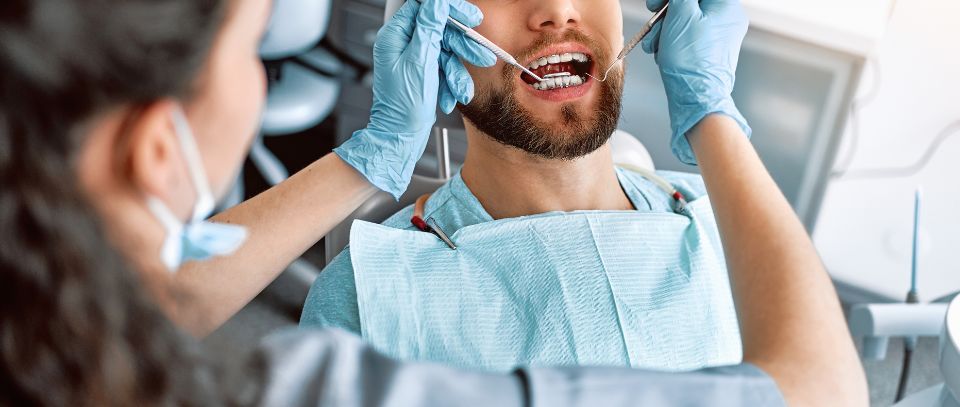Sports dentistry could be the difference between celebrating your victory with all your teeth or looking for one on the court floor. Imagine that, just at the decisive moment of a match, an unexpected blow leaves you without your best smile. Stay with us, because in the next few minutes you’ll discover the mistakes almost all athletes make and the simple strategy that will help you avoid this bitter pill.
What is Sports Dentistry and Why Do You Need It?
Sports dentistry is the branch of dentistry that identifies, prevents, and treats oral injuries caused by sports practice. Its mission is twofold: to protect the teeth before impact occurs and, if an accident happens, to minimise the consequences so the athlete can return to compete in complete safety.
Going to the dentist regularly is like maintaining your car: you don’t wait for it to break down to take it to the garage. The same applies to your mouth.
Essential Benefits
- Prevention of dental trauma.
- Reduction of cuts to lips and cheeks.
- Performance improvement: a healthy mouth allows better oxygenation and avoids pain-related distractions.
- Speed in diagnosis and treatment after injury.
Most Common Oral Risks in Sport
Fractures and Dental Avulsions
Contact sports (football, basketball, martial arts) are the main cause of broken or knocked-out teeth.
Soft Tissue Lacerations
Unexpected blows can tear gums, tongue, and mucous membranes, complicating healing.
TMJ Joint Injuries
Bruxism caused by competitive stress overloads the temporomandibular joint, generating pain and clicking sounds.
Cavities and Erosion from Energy Drinks
Frequent consumption of acidic isotonic drinks, together with mouth breathing, promotes enamel demineralisation.
The Secret Weapon: The Sports Mouthguard
Types of Mouthguards
- Pre-fabricated: affordable, but offers the least adaptation and comfort.
- Boil-and-bite: significantly improves fit after being heated in hot water.
- Custom-made: manufactured in-clinic with digital impressions; the most comfortable, resistant, and secure.
Why Choose a Custom-Made One?
- It fits the athlete’s dental arch with millimetre precision.
- Allows speaking and breathing without discomfort.
- Withstands repeated impacts without deforming.
Quick Tip: Check the thickness. For high-impact sports, a multi-layered guard of at least 4 mm is recommended.
When to Visit the Sports Dentist
Start of the season: full check-up and impressions if a new guard is needed.
After a blow, even if there’s no pain: many cracks go unnoticed and can evolve into fractures.
Every six months: cavity, gum, and mouthguard fit control (especially in young athletes still growing).
If you practise sport regularly and haven’t yet consulted a specialist, we encourage you to discover how we work at Quality Dent Sabinillas; you’ll find protocols adapted to every discipline and age.
Frequently Asked Questions (FAQ)
Do mouthguards affect performance?
No. Custom models allow you to speak and breathe normally. Some athletes even report greater focus as they feel protected.
How long does a mouthguard last?
Between one and two years, depending on use, jaw growth, and bite strength. Check it every season.
Can I use the same mouthguard for different sports?
If the contact levels are similar, yes. However, for boxing or ice hockey, extra thickness is advisable.
Conclusion: Your Smile Trains Too
Sports dentistry isn’t a luxury, but an essential part of comprehensive training. Just as you warm up your muscles or adjust your gear, your mouth needs protection and specialised attention. Implement a custom-made mouthguard today, check your oral health regularly, and maintain hygiene habits consistent with your activity level. That way, your next victory will come with your best smile.


